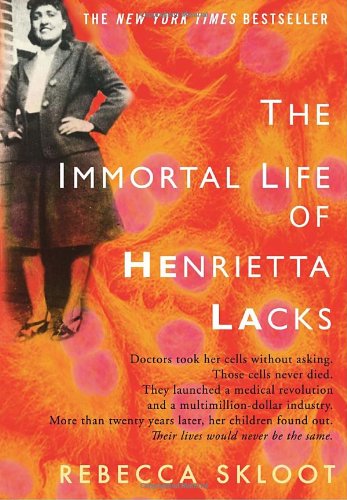

Most ebook files are in PDF format, so you can easily read them using various software such as Foxit Reader or directly on the Google Chrome browser.
Some ebook files are released by publishers in other formats such as .awz, .mobi, .epub, .fb2, etc. You may need to install specific software to read these formats on mobile/PC, such as Calibre.
Please read the tutorial at this link: https://ebookbell.com/faq
We offer FREE conversion to the popular formats you request; however, this may take some time. Therefore, right after payment, please email us, and we will try to provide the service as quickly as possible.
For some exceptional file formats or broken links (if any), please refrain from opening any disputes. Instead, email us first, and we will try to assist within a maximum of 6 hours.
EbookBell Team

5.0
38 reviewsHer name was Henrietta Lacks, but scientists know her as HeLa. She was a poor Southern tobacco farmer who worked the same land as her slave ancestors, yet her cells — taken without her knowledge — became one of the most important tools in medicine: The first immortal human cells grew in culture, and are still alive today, though she has been dead for more than sixty years. HeLa cells were vital for developing the polio vaccine; uncovered secrets of cancer, viruses, and the atom bomb’s effects; helped lead to important advances like in vitro fertilization, cloning, and gene mapping; and have been bought and sold by the billions.
Yet Henrietta Lacks remains virtually unknown, buried in an unmarked grave.
"… one of the most graceful and moving nonfiction books I’ve read in a very long time … Ms Skloot, a young science journalist and an indefatigable researcher, writes about Henrietta Lacks and her impact on modern medicine from almost every conceivable angle and manages to make all of them fascinating … Ms Skloot writes with particular sensitivity and grace about the history of race and medicine in America…[and] makes it abundantly clear why when Henrietta Lacks’s family learned that her cells were still living, the images that ran through their minds were straight out of science-fiction horror movies … The Immortal Life of Henrietta Lacks is also, from first page to last, a meditation on medical ethics — on the notion of informed consent, and on the issue of who owns human cells. When they’re in your body, it’s obvious — they’re yours. But once they’ve been removed? All bets are clearly off." - Dwight Garner, The New York Times
As Rebecca Skloot so brilliantly shows, the story of the Lacks family — past and present — is inextricably connected to the dark history of experimentation on African Americans, the birth of bioethics, and the legal battles over whether we control the stuff we are made of.